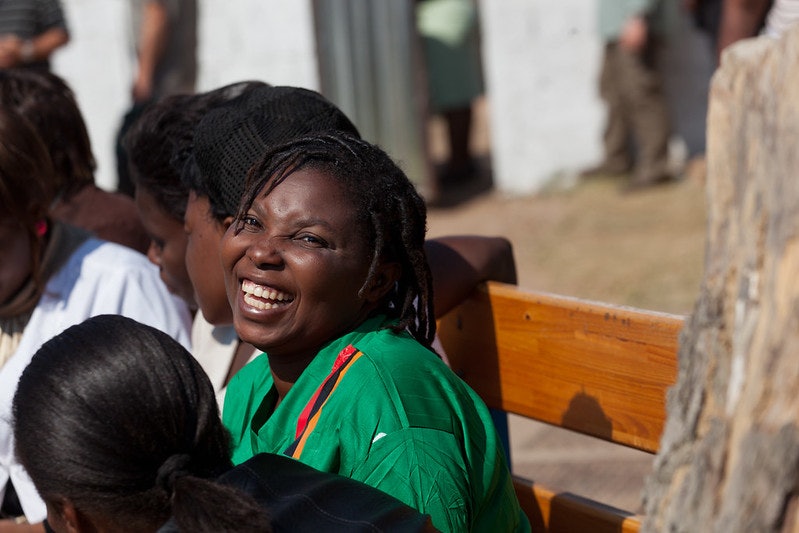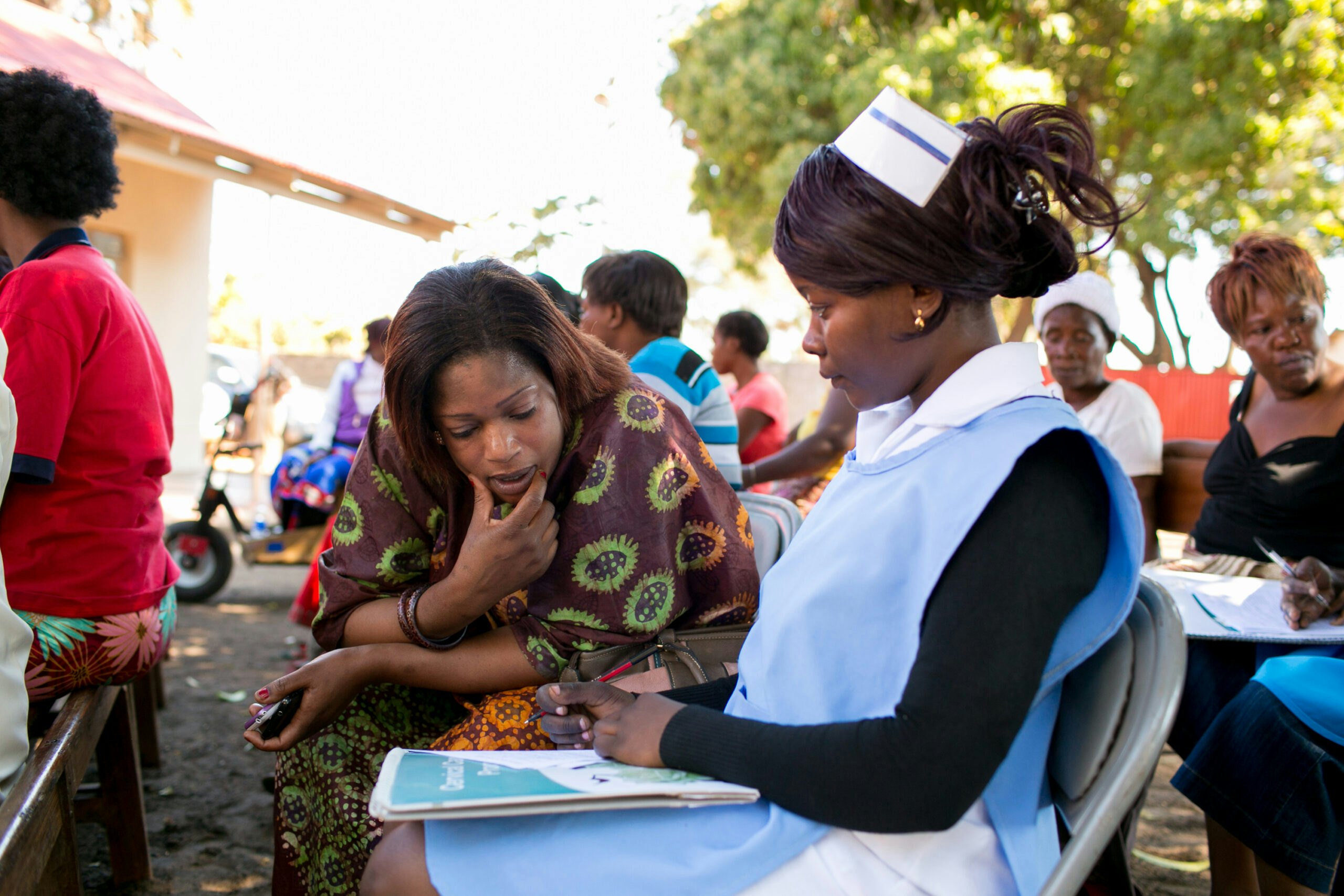Pashtana Durrani is the Executive Director and Founder of LEARN Afghanistan and a member of the Bush Institute’s Afghan Education Working Group. LEARN (@LearnAfg) is a grassroots organization established to provide education safely and securely to girls through a distributed network of tablet computers using an offline platform. Recently, LEARN partnered with Radio Free Europe/Radio Liberty platform, Azadi Radio, to offer on-air classes to students in grades 7 to 12. Through LEARN, Pashtana has educated 7,000 girls and boys in Kandahar, Afghanistan, and trained more than 80 teachers in digital literacy. LEARN also focused on girls’ health, and had trained 700 girls in menstrual hygiene management. Pashtana was evacuated from Afghanistan last fall and currently resides in the U.S.
This interview has been edited for length and clarity.
How has LEARN impacted women and girls in Afghanistan, and what do you hope for the future of Learn?
Pashtana Duranni: I … come from a very rural tribe of Afghanistan. I come from Mar of Kandar, the most sheltered district and a border district in Afghanistan. The first [challenge] I was presented with is no schools. So actually [the community LEARN] focused on … first was my own community, and we focused on digital literacy because there were no teachers willing to go back and teach in those communities. So we took the solutions that were present to us. We reached out to any community and every school that was willing to give us the content, and we built these digital schools. And since then, we have impacted around 7,000 girls. We run clinics that actually focus on girl[s], women, and infants. We have humanitarian assistance programs that help them in earthquakes and floods. And, apart from that, we have [a] meal delivery system [to] deliver meals to malnourished and starving children in maternity wards.
So those are the things that LEARN has done in the past. Right now, Learn is running four schools in Kandahar, Kabul, Bamiyan, and Takhar, and we are hoping to start four more in Sharak.…
I would say … the best thing about Afghanistan is the women of Afghanistan, and the only thing I’m hopeful about is my students. Despite everything [the Taliban takeover], this will show off the school because they still know that there is a future out there in a brave world and that’s waiting for them and they really want to show off for that. So that makes me hopeful.
What has it been like being a refugee in the U.S.? What is the biggest challenge you faced so far?
PD: I think the biggest challenge would be for me to understand how the bureaucracy works because it’s very challenging. In Afghanistan, you always have someone to do that for you. Here, I have to do it myself. That’s challenging, but I also come from a place of privilege when I say that I have been welcomed in my town. I’ve been welcomed by [an] amazing college. I have been welcomed by this amazing supportive community. I have been welcomed by Jessica Yahn from the Army. I really never thought that I would fit anywhere else out[side] Afghanistan, but this feels like home now. And the fact that this feels like home is because of this community. So I’m very grateful to them.… I was very welcomed, very supported, very loved.
What do you want Americans to know about Afghanistan?
PD: I think one thing I probably want to say it out loud … is, yes, Americans are done with Afghanistan. They’re so frustrated with the fact … so much taxpayer money [went] to Afghanistan, and … the news was never so good. A lot of people were lost, but then at the same time, we are a very new democracy. We were bombed. We were sanctioned, but at the same time, we’re controlled by a group of conservative men who didn’t believe in the future of Afghanistan, who were mercenaries for other countries and controlling [the] country [like] a hostage.
So it’s very important to understand that, inside Afghanistan, there are normal people like us who believe in Afghanistan, who are working on solutions toward a better … Afghanistan [which] could be an ally to all the world, not only just one country. A prosperous Afghanistan where girls can go to school, become someone that they would [like to] be, and also represent Afghanistan, on every stage possible.… A state that [doesn’t] depend on aid, but is a sustainable state, is an ally to the world, to a peaceful world, to a progressing world.
I think for an average American, it’s very important to understand Afghans are committed to Afghanistan, and we need … their support [to reach and achieve] those freedoms that [Americans] have access to….
What do you hope the Bush Institute’s Afghan Education Working Group achieves?
PD: I think this is the most amazing opportunity I have come across in a while, and I have been [in the United States] for almost six months.… I have reached out to everyone and anyone. And [the] Bush Institute is the first institute that has actually lent a helping hand, tried to focus on it, and listened to the solutions that are there. So I think one thing that makes me proud is being part of this group, but also at the same time that, by the end of this year, I hope to open 16 schools across of Afghanistan. And I really hope that this group is able to support that initiative so that at least we have a hundred girl leaders throughout the provinces and hopefully that will happen.
In addition to opening 16 schools, do you have any other hopes long term for your future?
PD: One thing I clearly know about myself is I’m committed to Afghanistan. I hope to return to Afghanistan, and I hope to see a better Afghanistan than the one I left. And I do know that there is a better Afghanistan out there. We just have to work hard for it. And I hope that there will be a woman president of Afghanistan someday.






























